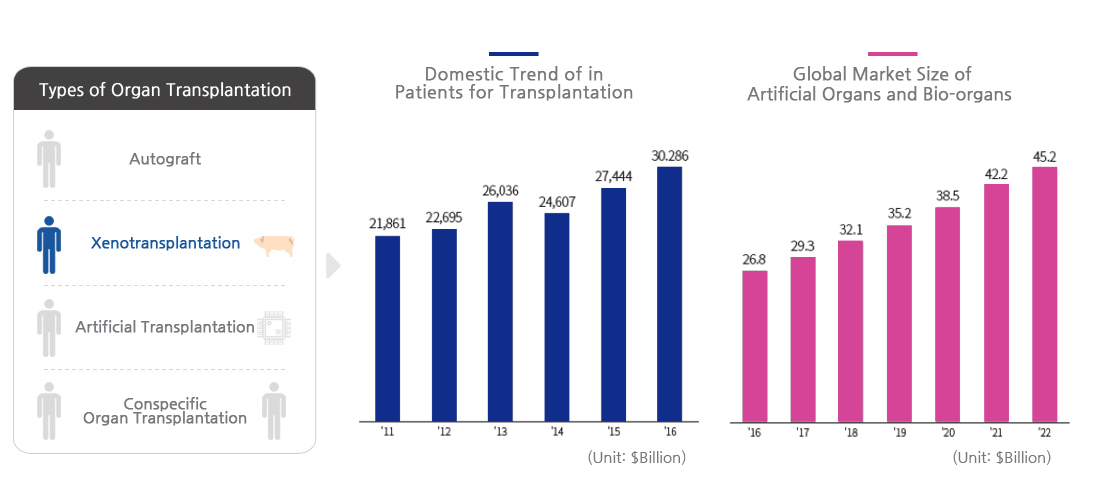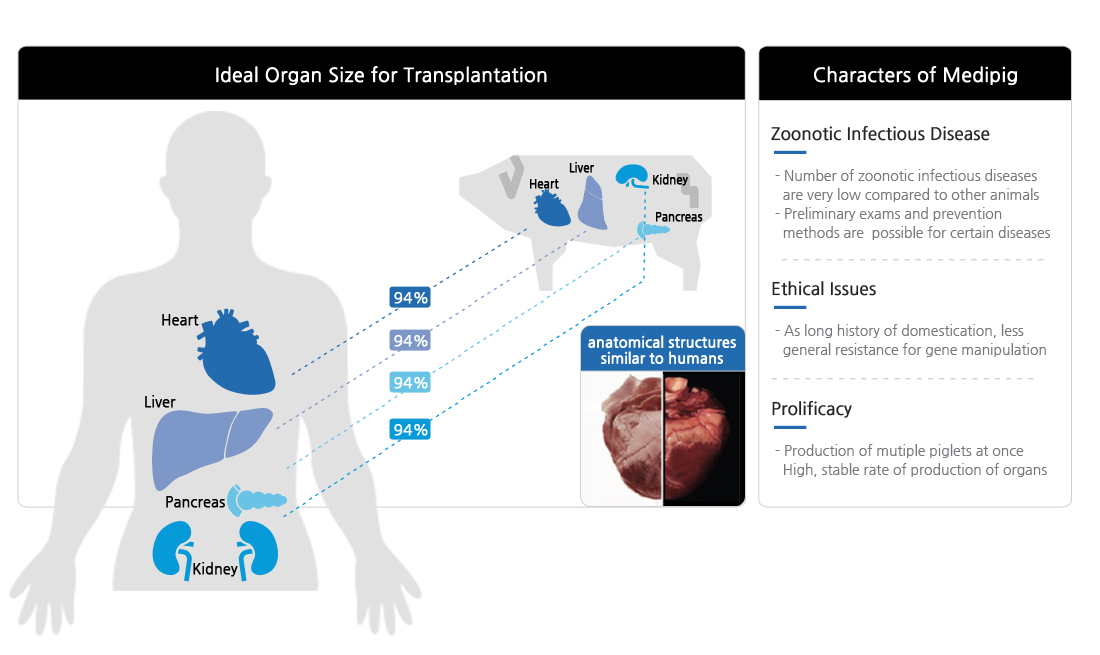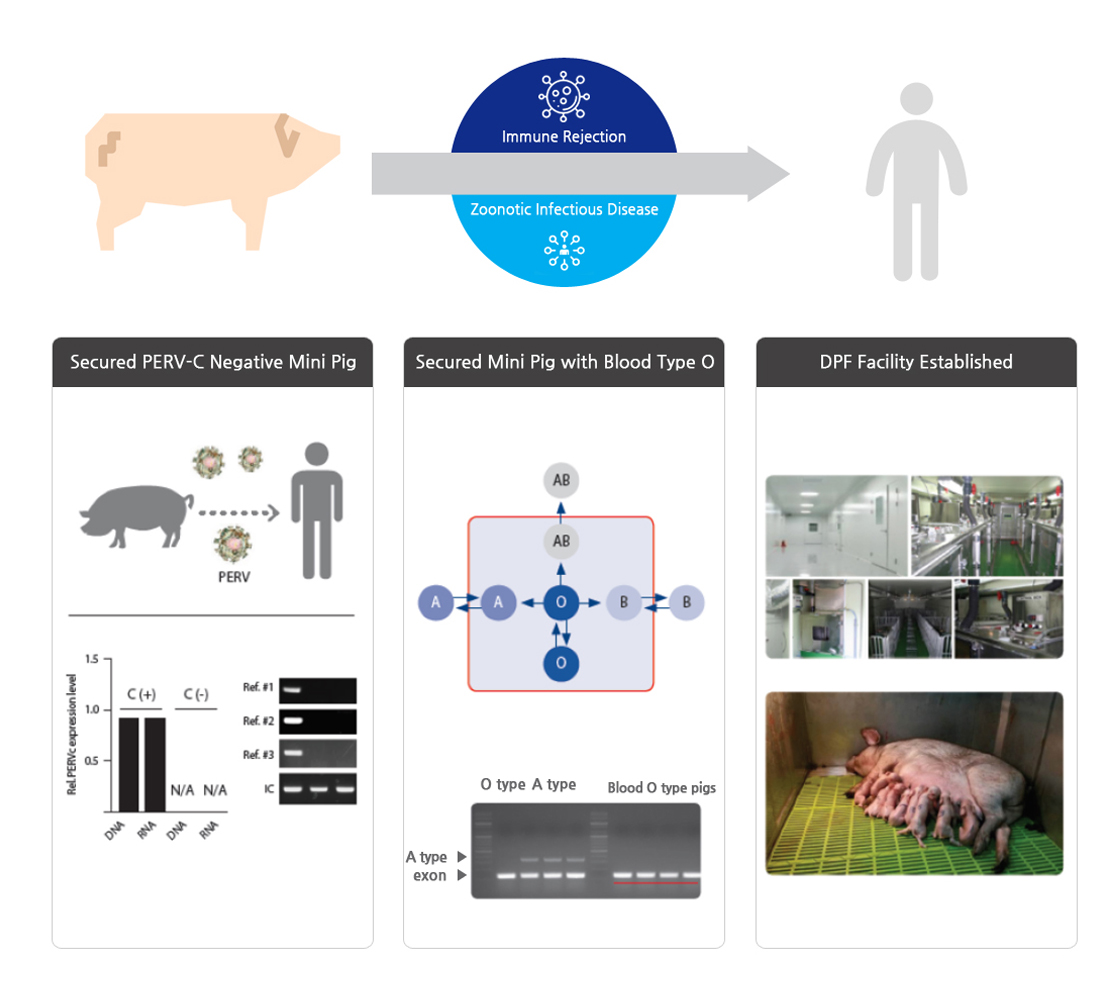The number of patients waiting for organ transplantation are increasing each year. However, as the human organ supply far outnumbers the demand, only 10% of the patients are actually able to receive treatment via transplantation. The shortage of donor organs are also cause of social issues such as illegal human organ trafficking to added concern. In an aim to resolve these matters, xenotransplantation - the transplantation of organs, tissues, and cells from animals to humans - has developed.

The miniature pig is an ideal model for xenotransplantation as the organs of miniature pigs are physiologically and anatomically similar to humans. Furthermore, as one pig can produce over 20 piglets in one year, organs for xenotransplantation can be supplied in large numbers. The miniature pig as xenotransplantation model can also be produced at Designated Pathogen Free (DPF) grade.

Transplanting the organ of a different species to the human body will cause stronger rejection compared to allo-grafts between human organs. To control such immune rejections, the development of transgenic pigs through optimal gene manipulation is necessary. Optipharm is developing and producing such transgenic pigs to minimize the immune response. We are maintaining the quality of transgenic miniature pigs through periodic disease monitoring for 70 kinds of pathogens based on the guidelines of the International Xenotransplantation Association (IXA). We are currently developing and providing animal resources for xenotransplantation with the most beneficial factors for humans. We are producing miniature pigs with similar characteristics of the O blood type and those that show a negative reaction of the porcine endogenous retrovirus (PERV) which may cause zoonosis.
